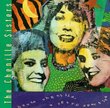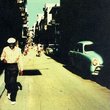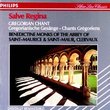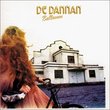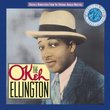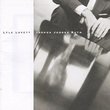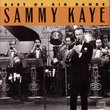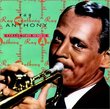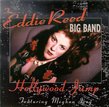| All Artists: Blind Willie Mctell Title: Definitive Blind Willie Mctell Members Wishing: 7 Total Copies: 0 Label: Sony Original Release Date: 5/10/1994 Release Date: 5/10/1994 Genres: Country, Blues, Pop Styles: Classic Country, Delta Blues, Traditional Blues, Regional Blues, East Coast Blues, Acoustic Blues Number of Discs: 2 SwapaCD Credits: 2 UPCs: 074645323428, 074645323442 |
Search - Blind Willie Mctell :: Definitive Blind Willie Mctell
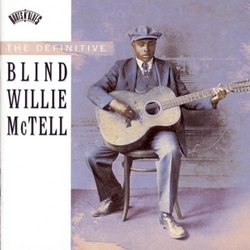 | Blind Willie Mctell Definitive Blind Willie Mctell Genres: Country, Blues, Pop
An extraordinary 12-string guitarist and robust singer, Willie McTell's career began in Statesboro, Georgia, where the blind-from-birth musician performed on corners for spare change. While he immortalized that town in the... more » |
Larger Image |
CD DetailsSynopsis
Amazon.com An extraordinary 12-string guitarist and robust singer, Willie McTell's career began in Statesboro, Georgia, where the blind-from-birth musician performed on corners for spare change. While he immortalized that town in the much-covered "Statesboro Blues," it was McTell's move to Atlanta in 1927 that led to his first studio dates--and a recording career that lasted, on and off, until his death in the late '50s. This two-CD collection features tracks from 1929 to 1933 when McTell, already under contract to Victor Records, began recording for Columbia and Vocalion under a variety of aliases such as Blind Sammie and Georgia Bill. McTell was equally adept at blues ("Talking to Myself," "Broke Down Engine Blues"), ballads ("Lord Send Me an Angel"), and rags ("Georgia Rag"), and his work is a delightful primer of 1920s Southeastern street music. --Billy Altman Similarly Requested CDs
|
CD ReviewsMistitled, Misrepresented Robert Carlberg | Seattle | 05/22/2002 (4 out of 5 stars) "This set is titled "The Definitive BWM" and the liner notes say -- twice -- that it includes "all his known recordings."However, there's nothing here from his 1927 Atlanta session, his 1928 Atlanta session, his 1932 Atlanta session (as "Hot Shot Willie"), his 1935 Chicago sessions with Ruth Day, his 1936 Augusta session (as "Red Hot Willie Glaze"), his well-known 1940 session for John Lomax, his 1949 Atlanta session (as "Pig & Whistle Red") or his famous last session, 1956 in Atlanta for Ed Rhodes. How can they claim this is a "definitive" set?The sound quality, as another reviewer mentioned, is somewhat mangled from ham-fisted noise reduction. I wouldn't go so far as to agree, however, that the originals were in "pretty good shape." To modern ears, these old 78's are pretty beat-up.In spite of all this however, I give it 4 stars for McTell's sterling presence. Until a better set comes along, this'll have to do." The Tone-Master! Pharoah S. Wail | Inner Space | 09/20/2001 (5 out of 5 stars) "My moods change and I listen to lots of different styles of music but when it comes to pre-war blues, did anyone have a better guitar-tone than Blind Willie McTell?? Generally speaking, I rarely listen to anyone directly after I listen to McTell simply because the depth and richness of his tone makes other guitarists playing sound..well, not as rich. That's not to take anything away from the other masters like Lonnie Johnson (whom I LOVE), etc... it just speaks to how truly huge McTell's sound was. And yes part of it is just the 12-string factor, but I'd even choose McTell over other 12-stringers.If you're unfamiliar with McTell, I think I would say that in certain aspects, some of his songs make me think of Woody Guthrie. If you don't like Woody then PLEASE don't let that scare you away from this great box-set. McTell had a better voice, he was an infinitely better guitarist, and his songs never have the political focus that Woody's have, but some of McTell's folkier talking-blues tunes do make me think of Woody a bit. And let it be known that I easily prefer McTell over Woody in terms of "performance ability". Plus, many of his songs don't make me think of Woody at all, such as Talking To Myself for instance. This is one of my favorite songs in all of pre-war blues. Really unique and wonderful, I've yet to hear anything like it by anyone else. You'll also notice that Robert Johnson was obviously familiar with McTell, as Robert's They're Red Hot is almost rhythmically identical to a couple of McTell's tunes on this set.All in all, there's nothing that can really be said except "Buy this set!". It's inexpensive and it's one of the best collections of one of the best blues musicians that ever lived. Oh! One more thing, yes the title is indeed misleading if you didn't know anything about McTell before reading this. This is not a "definitive collection of everything Blind Willie McTell recorded". It is only the definitive collection of everything he recorded for the Columbia, Okeh, and Vocalion family of labels.Worth every penny." Look elsewhere for "definitive" Will Shade | Decatur GA | 02/05/2005 (2 out of 5 stars) "This is Columbia's McTell 2-CD boxed set. The text on the back of the box tells us that the collection is complete, but doesn't specify what they means by "complete". It lacks Statesboro Blues, which means the collection is neither complete nor definitive. Typical of Columbia remastering of old blues or jazz recordings, the surface noise is minimized at the expense of depth of the actual recording. McTell's booming 12-string sounds rather thin on these Colombia remasterings.
For better alternatives, there's a new Yazoo "best-of" collection which will probably be the CD of choice if you want a one-CD collection. These guys are reliably excellent with digital remastering of early blues recordings. Then there's JSP's boxed set (5-CDs) of complete early recordings up to 1940. The JSP includes Statesboro and all of his early classics, in excellent sound. And it can be had for $20 to $30, so it might steal 1st choice from Yazoo, unless you're short of storage space. Whichever you choose, McTell is one of the great singers of his age, plus he had a fair hand with the guitar. An essential acquisition if you're building an early blues collection." |

 Track Listings (21) - Disc #1
Track Listings (21) - Disc #1
